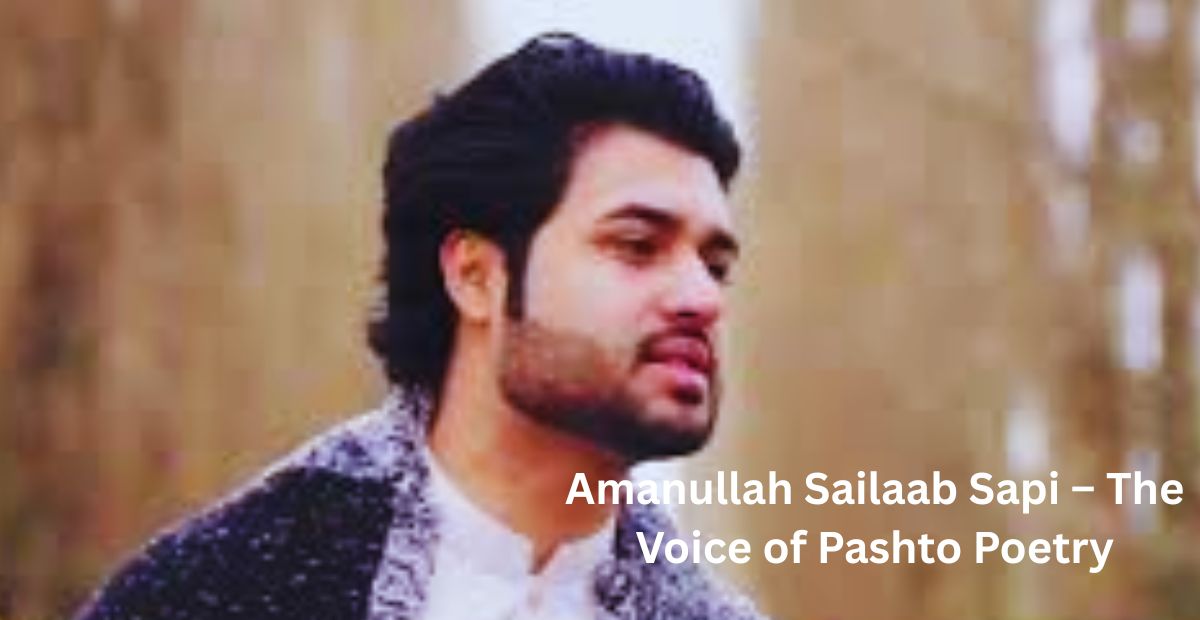Introduction
Amanullah Sailaab Sapi (Pashto: امان الله سېلاب ساپی), born in 1933 in the picturesque Kama District of Nangarhar Province, Afghanistan, remains one of the most beloved figures in Pashto literature. Known for his emotionally rich poetry and deep national sentiment, Sailaab Sapi left an enduring legacy through his written words and their transformation into timeless songs. Though he passed away in 1979, his influence on Afghan poetry and music still resonates today.
Early Life and Education
Amanullah was born into a Pashtun family led by Nasrullah Khan Sapi. Raised in the heartland of Nangarhar, he received his primary education at a local school in his district. From a young age, Amanullah displayed a unique talent for language and literature, which later blossomed into a lifelong passion for poetry.
A Career Rooted in Art and Service
Professionally, Sailaab Sapi worked as a government employee. However, his true identity was shaped through poetry, a craft in which he achieved national recognition. Balancing service and art, he became an inspirational figure for both aspiring poets and the wider Afghan community.
Contribution to Pashto Poetry and Afghan Music
Amanullah Sailaab Sapi is celebrated for his contributions to Pashto poetry, with many of his works expressing love, longing, patriotism, and devotion. What made his poetry especially powerful was its accessibility and emotional depth, allowing it to be beautifully adapted into song.
One of his most iconic poems, Sta De Sterogo Bala Wakhlam (Pashto: ستا دسترګو بلا واخلم), was immortalized in song by the legendary Afghan singer Ustad Awalmir. This particular composition continues to be cherished across generations. His words were not just verses but melodies that spoke to the Afghan soul.
Sailaab’s poetry also caught the attention of other great artists like Ustad Ayub, Ustad Nashenas, Ustad Shah Wali, Ustad Khyal Muhammad, and Mirmon Rukhshana. These collaborations significantly contributed to the golden era of Afghan music and poetry.
Recognition and Awards
During the presidency of Mohammed Daoud Khan (1973–1978), Sailaab Sapi’s poetry received national acclaim. His poem dedicated to Mother’s Day won the prestigious award for excellence in both Pashto and Dari literature—an acknowledgment of his unparalleled poetic talent.
Published Works
Among his many literary achievements, Sailaab Sapi authored several books. One of his most notable works is Da Marghalara-o-Amail, a collection that reflects his depth of thought and poetic mastery. His writings continue to be studied and appreciated by scholars and poetry lovers alike.
Legacy and Influence
Though his life was cut short in 1979, Amanullah Sailaab Sapi’s poetry lives on in the hearts of the Afghan people. His unique style, deep emotional themes, and cultural relevance have made him an enduring symbol of Afghan literary brilliance. His words continue to inspire new generations of poets, writers, and artists in Afghanistan and beyond.
Conclusion
Amanullah Sailaab Sapi was more than just a poet—he was a cultural icon whose voice echoed the hopes, sorrows, and beauty of Afghan life. His blend of lyrical talent and national pride made him a pillar of Pashto literature. In remembering Sailaab Sapi, we celebrate the spirit of a man whose poetry helped shape the cultural identity of a nation.
Keywords for SEO: Amanullah Sailaab Sapi, Pashto poet, Afghan poetry, Nangarhar poets, Pashto songs, Sta De Sterogo Bala Wakhlam, Afghan literature, Ustad Awalmir, Daoud Khan poetry award, Pashto writers
